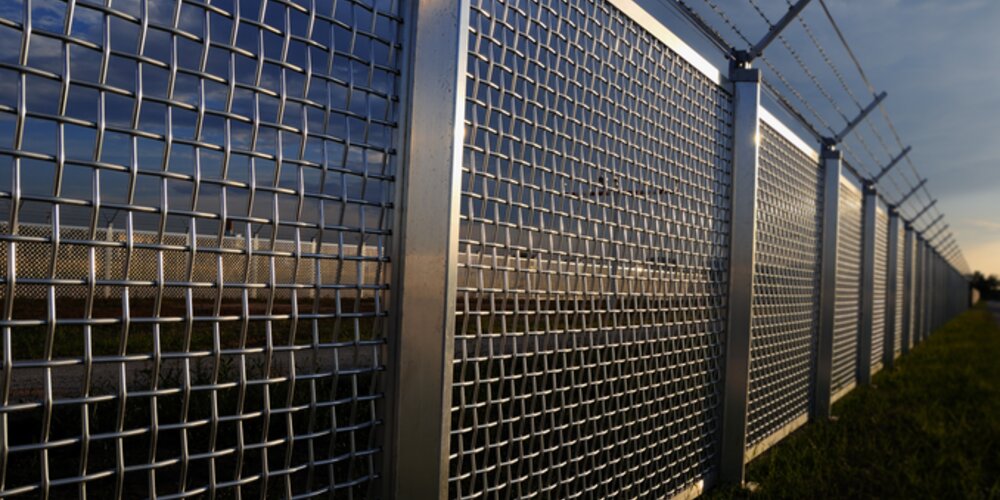TT Talk - In transit storage

The curse of cargo theft continues to impact stakeholders in the supply chain. Analysis of incidents, increased data sharing agreements, collaborations and widespread dissemination of findings, all serve to improve understanding of the underlying risks.
COVID-19 restrictions in certain regions changed the strategies of perpetrators of cargo theft. Restrictions on movement led to static facilities (warehouses or transport depots) being targeted more frequently. The theft of goods from a trailer in transit evolved into the theft of the entire trailer and contents.
The ingenuity and audacity of these criminals remain astounding. A greater degree of planning is required to enter a depot or warehouse than simply pulling a vehicle up alongside a parked truck. Intricate details of security provisions, patrols, entry and exit points and the operations on site are required.
Those tasked with security in the supply chain operate within an ever-changing environment. Perpetrators are agile; as one gap is closed, they can quickly shift their focus to another unwitting victim or to a mutated strategy, always exploiting vulnerabilities. Notwithstanding the challenge, it is important to take adequate steps to safeguard your business and the property (cargo) you take into your care, custody and control.
"it is important to take adequate steps to safeguard your business and the property (cargo) you take into your care, custody and control"
Depot security
The security features and strategies available are wide in scope, often expensive to design, install and significantly, to maintain. Importantly, stakeholders should ensure that the features chosen are fit for purpose and sustainable. Security measures should be scaled appropriately to the operations of the depot, not least the volumes of high-value cargo being handled/stored.
Physical security measures
Physical aspects of security should be a primary focus. Perimeter fencing to prevent easy access is critical. The fence should be at least two metres tall, constructed of robust material (preferably of mesh design rather than palisade) and cover the entire perimeter. Any fence is only as secure as its weakest point.
A gatehouse at the entrance of a depot, coupled with security personnel will also act as a strong deterrent. Entrance and exit controls to the depot are a key security feature. Access points should be designed to replicate the protection offered by the perimeter fence line. Barriers preventing direct vehicular access and egress should be considered, with the option of a heavy-duty gate making the entrance/exit secure. Rising bollards installed at the main point(s) of entry and exit can also increase security.
Adequate lighting serves multiple functions within a depot environment, including safety and security. Ensuring that the depot is sufficiently or 'smartly' (eg. PIR controlled) lit during hours of darkness reduces the opportunity for thieves to enter and move without detection.
Trailer security, especially where high-value/consequence cargoes are left loaded should be a priority. Devices such as king pin locks should be considered to increase the difficulty for a thief to couple up and drive the trailer away.
Technology solutions
CCTV is important and can act as a deterrent. However, to derive the greatest benefits, the CCTV system must be fit for purpose, capable of recording high-quality images, well maintained and monitored.
Forensic deterrents are a reasonably new entrant into supply chain security, but have been successfully utilised to protect infrastructure in other industries for many years. Forensically coded grease or liquids can provide vital evidence to convict apprehended thieves, and notices advising their deployment act as a deterrent.
Automatic number plate recognition (ANPR) cameras could provide greater efficiencies. A recognised or expected vehicle would be allowed access to the depot, whereas an unrecognised vehicle would trigger alerts or prevent barriers from opening.
Strategic operations
High-value/consequence cargo should not be left on trailers overnight or for prolonged periods. When this is not possible, further controls must be established. These trailers should be parked away from the perimeter fence and, where possible, reversed up to a solid structure such as a building, wall or another trailer, preventing easy access to the rear doors.
"Security should be discussed..."
Security should be discussed at regular operational meetings such as shift changeovers, reiterating the importance of security, and highlighting any breaches or issues. A defined escalation process ensures that senior management are aware of any concerns and are able to influence outcomes.
Employ robust identification checks on drivers arriving on site, especially when they are due to collect trailers/cargo. Complacency can prove detrimental in this regard.
Keys for access gates and security barriers hold an obvious immediate value in the wrong hands and should be strictly controlled. Controlling keys for vehicles and handling equipment is important in respect of both security and safety. Where thieves have been able to gain access to the depot, it is essential to deny them easy access to ignition keys for trucks or vans.
Managing the insider threat posed by employees, contractors and temporary personnel must be considered. Security strategies should include control over identification badges/passes and restricting full site access where applicable. Protecting operationally sensitive information about security, cargoes and trailers on site and control of company-branded uniform is also of importance.
Maintenance/inspections
Once security measures have been considered and installed, it is imperative to ensure that they are regularly inspected and maintained. A formal defect process will assist in identifying and communicating issues that can be monitored through to the completion of repairs. Of particular importance are regular inspections of the perimeter fencing, gates and barriers and the CCTV equipment.
We gratefully acknowledge the assistance in the preparation of this article of David Thompson, Signum Services, a Thomas Miller Group company.
We hope that you have found the above interesting. If you would like further information, or have any comments, please email us, or take this opportunity to forward to any colleagues who you may feel would be interested.
We look forward to hearing from you.
Peregrine Storrs-Fox
Risk Management Director, TT Club
Documents
TT Talk 266 Chinese Translation (659 kB) 21/09/2020
- Author
- Staff Author
- Date
- 08/09/2020





